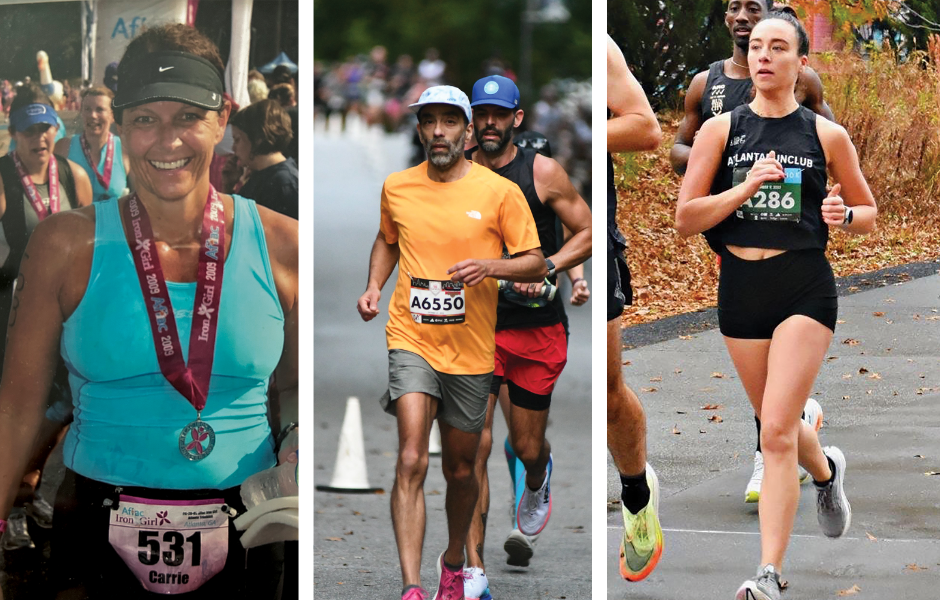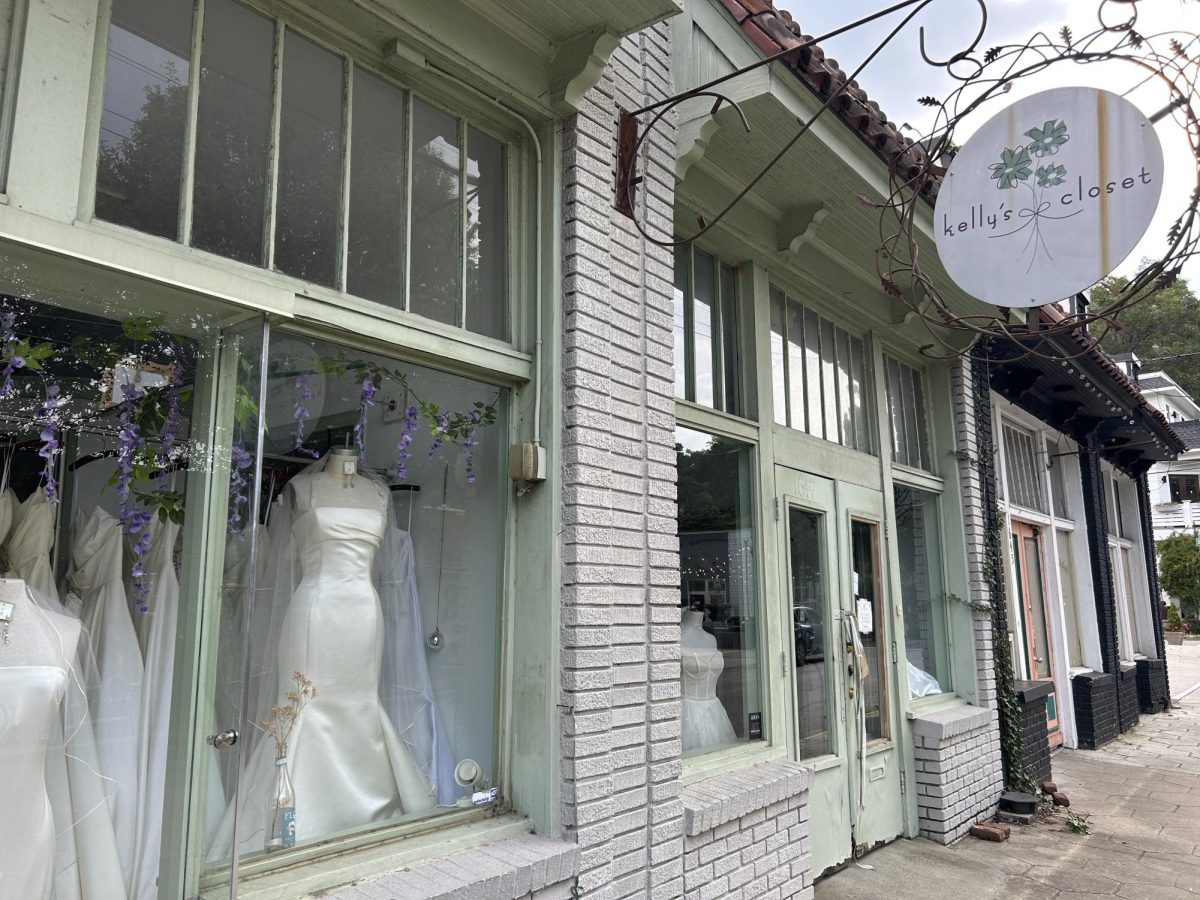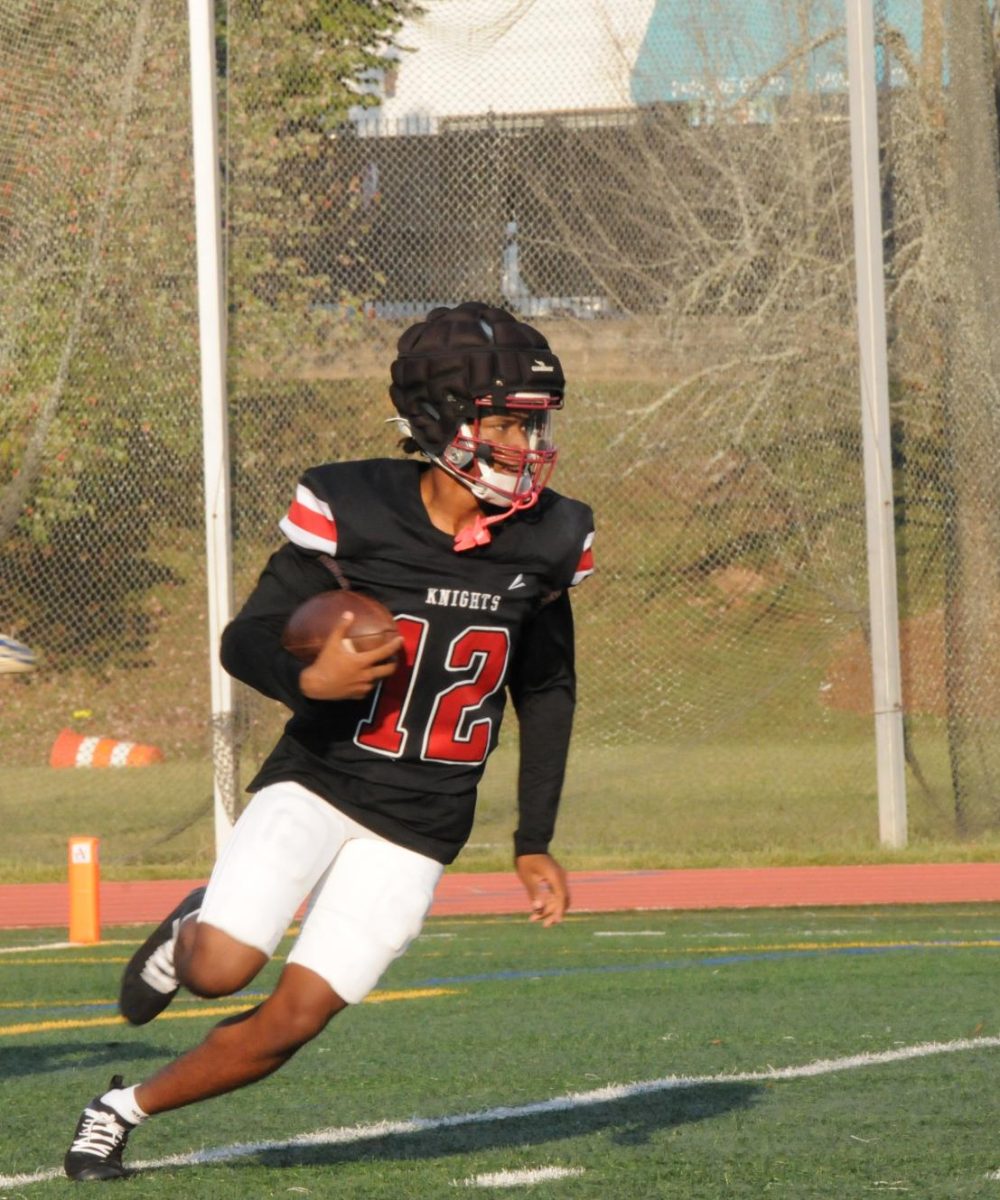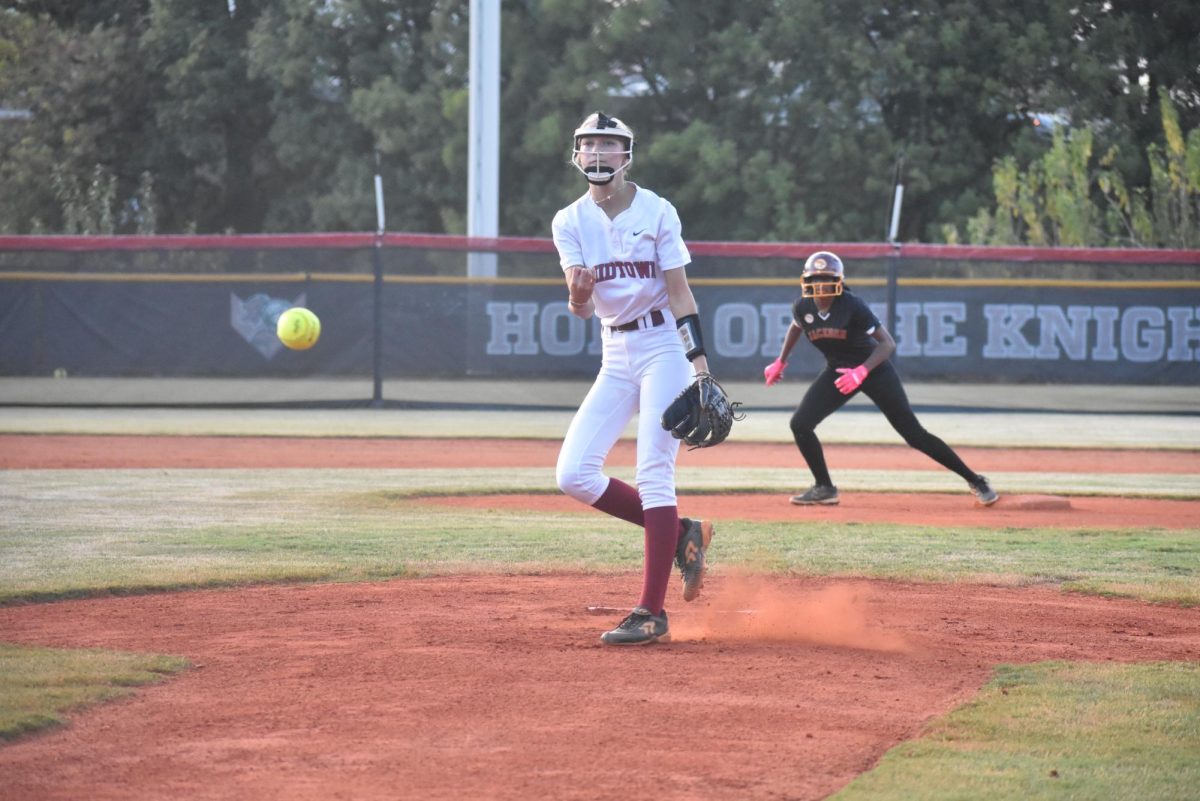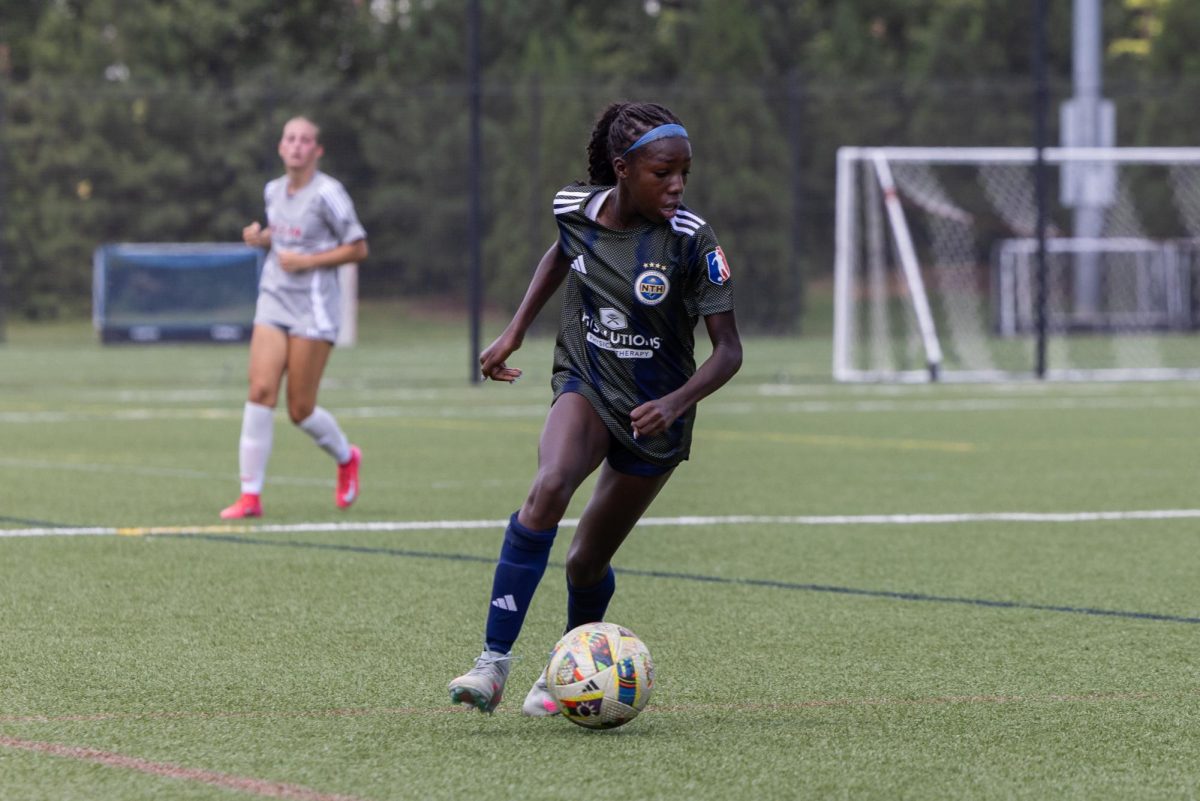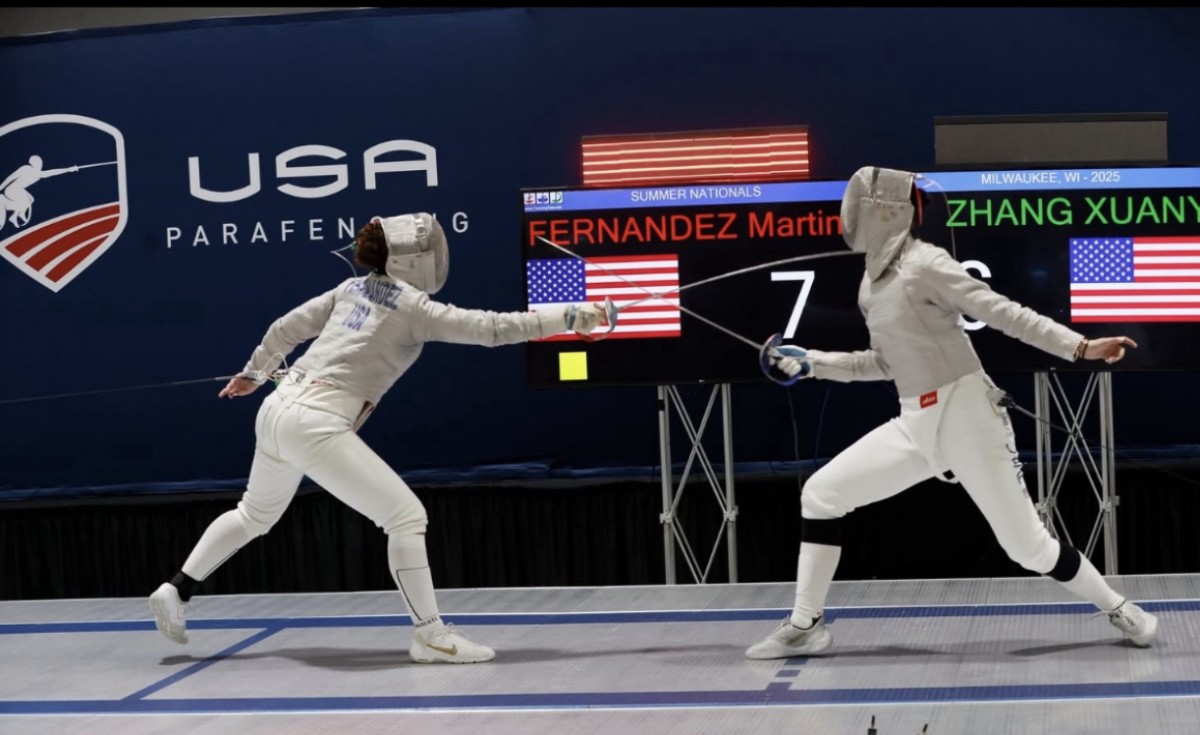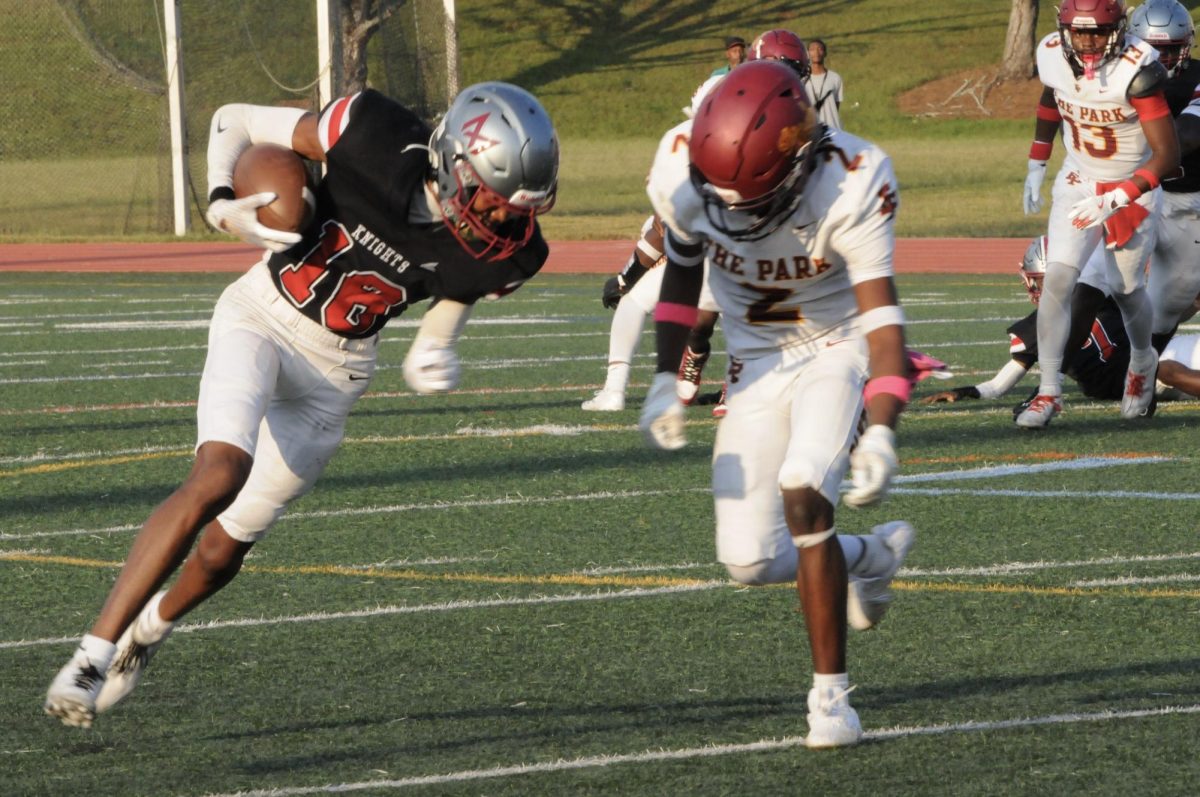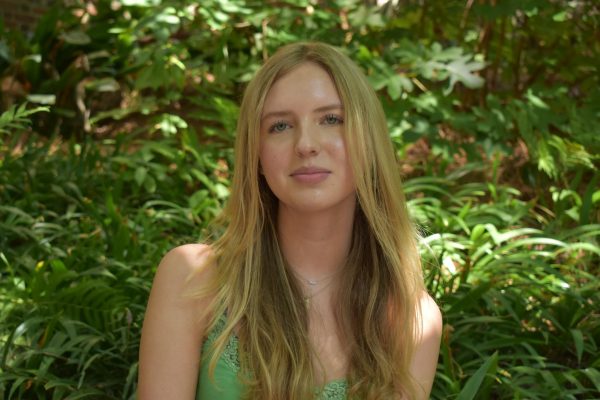While balancing their responsibilities to facilitate students’ learning, three Midtown faculty members tackle a challenge outside of school walls: training intensively to run marathons.
Throughout their careers as educators, media center specialist Brian Montero, speech language pathologist Charlotte Molloy and math teacher Carrie Rowe have embraced long-distance running as a way to challenge themselves.
“It’s always rewarding,” Montero said. “Even a hard run, even when you’re not feeling great, I’ve never had a run at the end of the run where I thought, ‘I wish I hadn’t done it.’ I think for me, that’s being able to tap into my flow state; it’s a spiritual thing.”
Brian Montero
In 2009, Montero began incorporating long-distance running into his lifestyle.
“I started biking first, and then I was biking a lot and started running 5k races,” Montero said. “I ran my first half marathon in 2010, so that’s when it really clicked. I got into really wanting to run more. A year later, I did my first marathon, and a year later, I was doing 50-mile races.”
Montero gradually progressed from shorter races to ultramarathons and said he grew to prefer long-distance running over short distances.
“Over time, when I started running, I tried a lot of different kinds of distances, like 5k, 10k and that type of thing,” Montero said. “I slowly made my way up to half marathons and marathons to the point now where I have a pretty strong aptitude for long distances … For whatever reason, it seemed like the longer the rung run was, the better I would do.”
Over the last 12 years, Montero has run at least six to eight ultramarathons a year, which include 50-mile and 100-mile races. Montero attributes his perseverance to his ability to grow and reach his goals as a runner.
“Discipline kind of comes easy for me,” Montero said. “I’m just naturally a disciplined person, so I can follow a routine really well. I can tell myself to run for three hours and just go run for three hours, and not be distracted.”
Montero said he has grown to appreciate trail races due to their balance of physical activity and mental peace.
“I feel like [trail races are]a little bit easier on the body, especially the longer you go,” Montero said. “Less sort of pounding, and you’re using more muscle groups, so I feel like trail running is a little easier on the body. Just aesthetically, just being out in nature for hours and hours at a time is really amazing, especially going up to the mountains. It’s like the way people would go on a long hike, except it’s a run. The same mentality of wanting to focus in peace and quiet — nothing out there except for you and the wind and whatever else is out there.”
One of the aspects of running Montero enjoys most is the connections it has allowed him to build with those who share his passion for the sport.
“I have made some great friends and a lot of camaraderie because, as you can imagine, especially with ultra marathons, there’s only certain things that only people who have gone through those experiences can really relate to,” Montero said. “It’s sort of a different breed of person who’s even interested in doing [marathons].”
Montero said while running has brought him closer to friends, it is sometimes difficult to find ways to keep running a social activity. Montero said it has been particularly difficult to stay close to some of his friends who don’t run because of his limited social time.
“It is inherently not an anti-social activity, but [running] is a solo endeavor,” Montero said. “The majority of my training, just because of the way it works out logistically, is solo, just because it’s hard to sync up with somebody who wants to run the same distance and has the same schedule. I would say that’s where the balance comes in, where I have to sort of force myself to make time for social things.”
As an educator, Montero hopes his commitment to running can provide an example for students.
“I believe we have to model the behavior that we want to see,” Montero said. “So, as adults, we can’t sit here and say these kids are lazy, they don’t do anything if we’re lazy and don’t do anything. So, we need to show that it’s good to be out there doing something and moving around.”
Montero believes through running, he has not only gained physical endurance but has also developed essential life skills.
“There’s so many great life skills you can pick up through running,” Montero said. “It’s all about consistency, patience, discipline and all of that pays off. You’re not going to see results immediately. You might see results way further in the future. You also have to focus. You have to take one step at a time, and it’ll teach you focus.”
Charlotte Molloy
Since joining her middle school’s cross country team, long distance running has been a significant part of Molloy’s life.
“I attempted a lot of different sports, and I quickly realized I lacked hand-eye coordination,” Molloy said. “Running was that sport that just seemed very welcoming, because everyone can run.”
As Molloy’s passion for running grew, she advanced to her high school’s cross country and track teams, which opened doors to opportunities for leadership in both sports.
“I went to a really small private all girls high school, and when I joined the track and cross country program, it wasn’t much of a program, but I had the opportunity to be team captain, and that put me in a very nice leadership position,” Molloy said. “I took more ownership over my running, and I realized I might have to figure out track meets and cross country meets that I can go to and that I can get the rest of my team involved with.”
Molloy said her role as a team captain sparked her interest in continuing running in college.
“I started getting recruited in high school, and I had colleges reaching out to me,” Molloy said. “When I realized that was a possibility, I latched on to it because the idea of doing a sport in college sounded very exciting to me — I definitely didn’t want my running career to end in high school. I started going on college visits, meeting with coaches and just hearing about other student athletes, what their experience was, and it was very inspiring.”
Molloy committed to Fairfield University for Division I cross country for her first year of college and transferred to the University of Buffalo for the rest of her undergraduate and graduate education.
“I spent the rest of my running career [at the University of Buffalo], which was awesome, because Buffalo was really great,” Molloy said. “It was a Division I school, very competitive, and it really pushed me to be the best runner I could be. I had amazing experiences and travel opportunities. I was able to PR in a lot of my races, which is a great feeling.”
After college, Molloy carried her love for running into her adult life by participating in running clubs, races and marathons.
“I quickly realized that at least with my age group, running is very popular, and it’s a great way to meet new people in a community and just get involved in a community,” Molloy said. “So, I’ve joined different running communities depending on the states I’ve been in, and by far, Atlanta has been the best running community, and I would say it’s the only reason I’m still here.”
Molloy said she has run two marathons and several half marathons and is currently training for the Boston Marathon in April 2025. To qualify for the Boston Marathon, Molloy needed a time under three hours and 25 minutes.
“Boston is pretty tough, so I feel very honored that I was able to get in and run a time that would safely get me into it, and I’m excited since I’ve only done two marathons,” Molloy said. “None of them were majors, so it’s nice to have an opportunity to run one of the world majors.”
Molloy attributes her career as a speech pathologist for helping her maintain her running lifestyle. Molloy said her profession has enabled her to explore new places and connect with running communities across the community.
“I honestly think my career is what kept me running,” Molloy said. “I knew very quickly after college that I wanted to travel. I never wanted to stay in New York, so I was taking travel contracts in different states and cities, and I was going places I didn’t know anyone. Running became a way to meet new people, and it is something I am comfortable with, and I’m pretty confident doing.”
Molloy said balancing her career with running has presented challenges, especially when commitments overlap.
“At the last high school I worked at, I actually coached the track team, and I found I couldn’t really keep coaching because it was a huge commitment and was taking away from my running or races I want to do,” Molloy said.
Molloy said working towards running goals, such as cutting her time for the Boston Marathon, has been the most motivating aspect of running.
“I know I’m capable of it,” Molloy said. “I know what I need to do to reach my goals. I think that aspect of hitting certain time goals is very motivating.”
As a former collegiate athlete, Molloy said she encourages her students to embrace the opportunities sports can provide.
“If you have the opportunity to run or compete in any sport, it’s the networking, the people you’re going to meet through doing that and where that’s going to lead you, you never know,” Molloy said. “So, if you have the opportunity to do it, take advantage and do it, because I feel like students are at this point in their lives where they have so many decisions to make, and you want to take advantage of all those opportunities.”
Carrie Rowe
After her friends suggested the idea of running together in 2002, Rowe began running marathons all while maintaining a full-time job as a math teacher.
“I had a group of friends, and we just decided that one day we were going to run a marathon,” Rowe said. “We started training together, and we decided we were going to run the Chicago Marathon. We started training every Saturday, we would have group runs, and it was just so fun.”
Rowe said the most rewarding part of her experience running marathons was the camaraderie she shared with her friends during training.
“It’s really great to do it with a group of friends,” Rowe said. “Running is so much better when you’re with people that you know because you would have these long conversations. We would run 15-mile runs, and you’re talking with your friends the whole time. I mean, you’re having life conversations while you’re running. It was just a great way to get together with my friends and hang out and do something that big together. It was just awesome.”
Rowe has run several half marathons and marathons. She said her accomplishment in completing a marathon inspired her to explore triathlons as a sport.
“I started doing triathlons after running because I wanted to try something different,” Rowe said. “I got a bike, and I trained to swim. I had to train for swimming, so I went to the gym to do that, and then I had a bike so I would go on long bike rides. I did it with a couple friends of mine, and we did some triathlons together.”
During the time that Rowe was pursuing marathons, she worked at Independence High School, where she found the demands of her teaching position more manageable. Rowe said this allowed her to dedicate the time necessary for marathon training.
“I taught there for 19 years, which wasn’t as stressful as being [at Midtown], so I had a little more time on my hands when I was training,” Rowe said. “Right now, I don’t even think I would have the time to train for marathons.”
Rowe believes she has greater responsibilities as a teacher now, making it challenging for her to balance her professional life with the intense time commitment required for marathons and triathlons.
“It takes a lot of time; it’s a time commitment,” Rowe said. “If you’re training to bike, run and swim, you have to find days to do that every week.”
Rowe said she tries to motivate her students with the lessons she has learned from running.
“If you want to do something, if you set your mind to it, you can do anything, as long as you have a good work ethic,” Rowe said. “I always tell my [students], you have to have a good work ethic. … If I wanted to run that marathon, I’m going to train. You just have to have a mindset that you can do it. And if you work hard, you can do anything.”

